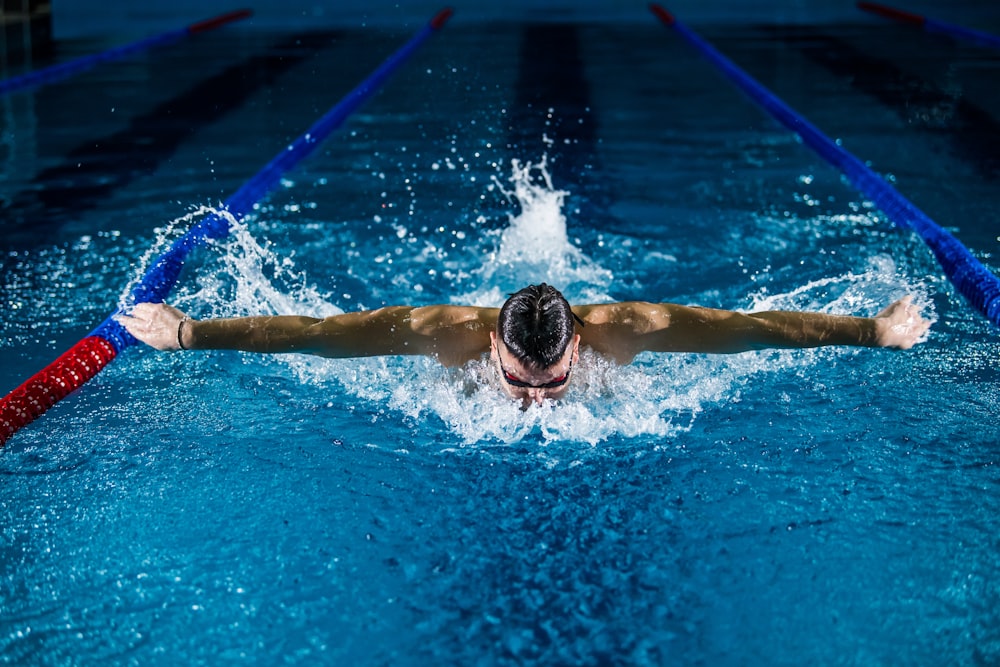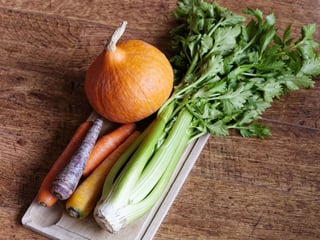MAKE A SPLASH
THIS SUMMER

Join Now For $0 Enrollment!
Learn MorePosted By: Kelly Rowe /

Ever been in this scenario? You successfully drag yourself out of bed (or the office) for a 6 a.m. (or 6 p.m.) cycling or HIIT class. You’re psyched to make the most of your workout. Then halfway through, a wave of exhaustion hits, your legs turn to Jell-O and your arms are like wet noodles. What’s happening?
Chances are you ran out of gas.
The secret to feeling energized through your workout and beyond: Fueling up with the right foods, not only pre-workout but in general. “I always know when my clients haven’t eaten right — they start petering out in the middle of our session,” says Deborah Stern, a certified personal trainer and nutrition coach with Chicago Athletic Clubs. Luckily, following a few simple eat-for-energy rules keeps your tank full so you can go the extra mile:
Never skip meals
Life is hectic, but you’ll face an energy crisis if you don’t take the time to eat. “Be consistent with the timing of your meals,” says Joy Dubost, a registered dietitian, food scientist and nutrition expert. “It keeps blood sugar levels steady and metabolism going.” It doesn’t matter if you eat six mini meals or three regular ones and a few small snacks; just eat regularly. The habit also means you won’t become so famished that when mealtime does roll around, you overindulge (which only gives you energy for a nap).
Insider tip: Set out the blender and prep fruit before bed so you can wake up and quickly whip up a breakfast smoothie. Also, schedule lunchtime on your calendar, and keep grab-and-go foods like granola bars and nuts in your desk.
Drink more H20
“I find most people are dehydrated,” Stern says. “Drinking a bottle of water when you’re feeling fatigued is the best and easiest way to up your energy level.” Even mild dehydration can alter mood and make you feel mentally sluggish, according to research from the University of Connecticut. And, as you might know, working out can be as much of a mental game as it is a physical one.
Insider tip: If you struggle to drink enough plain water, add lemon slices or mint and fill up on more hydrating foods. Think watery fruits and veggies like watermelon, grapefruit, blueberries, cucumber, bell peppers, lettuce and cauliflower, says Tamara Melton, a registered dietitian and founder of La Carte Wellness.
Be carb smart
Complex carbs like whole grains are healthiest, but simple carbs aren’t the enemy. “They get a bad rap, but simple carbs are easily digested, making them a great source of quick energy before a workout,” Dubost says. “They’re the No. 1 fuel source for an athlete.”
Insider tip: Before a workout, opt for small meals or snacks with simple carbs like cereal with banana and orange juice, Dubost says. Then, the rest of the day, stick to more nutrient-dense, slow-digesting carbs like whole grain bread, brown rice, quinoa and beans to fend off fatigue. Curious if you should carbo-load before a long workout? Talk to someone who specializes in sports nutrition before binging on pasta and bagels, Melton says.
Count on protein
Every meal should contain at least one food rich in protein. Carbs are burned quickly, but if you have protein in the mix, you’ll get a more sustained supply of energy, Stern says. Protein is also crucial in a post-workout snack or meal as it helps the body repair and rebuild muscles, and better, stronger muscles can mean more energy overall.
Insider tip: Eggs at breakfast, nuts for snacking, beans in a salad for lunch and grilled chicken or fish for dinner is pretty much a perfect day of protein.
Get a java jolt
In news that will surprise no one: Coffee boosts energy. Not only does research show coffee’s caffeine helps you feel more awake and alert and increases your ability to concentrate, but it can also help your workout. Coffee can increase endurance performance by as much as 24 percent, reports a study in the International Journal of Sports Nutrition and Exercise Metabolism.
Insider tip: Swap a supersize cup for regular mug; drinking smaller amounts more frequently maximizes coffee’s energizing benefits, according to research from Harvard University. (Note: Plus, too much can also make you feel jittery or sick.)
Maintain balance
Aim to get whole-food carbs, lean protein and healthy fats every time you eat. “Protein and fat aid in other parts of metabolism that affect energy levels, so a balanced, varied diet, plenty of whole fruits and vegetables, healthy fats and lots of water is the ideal way to get the most energy,” Melton says.
Insider tip: “An apple with peanut or almond butter; plain Greek yogurt with berries; whole wheat crackers and cheese — these kinds of snacks are like mini-meals that contain all the nutrients our bodies need to stay consistently energized over a longer period of time,” Melton says.
—Kelly Rowe for Chicago Athletic Clubs
© 2026 Chicago Athletic Clubs. All Rights Reserved. Privacy PolicyEmployee Login
https://www.chicagoathleticclubs.com/
https://www.chicagoathleticclubs.com/services/personal-training/
0
5000
true